cccc
15 September to 12 November 2022 ⟶ Galerie & Showroom
Exhibition view Galerie Georg Nothelfer. Photo: Katrin Rother
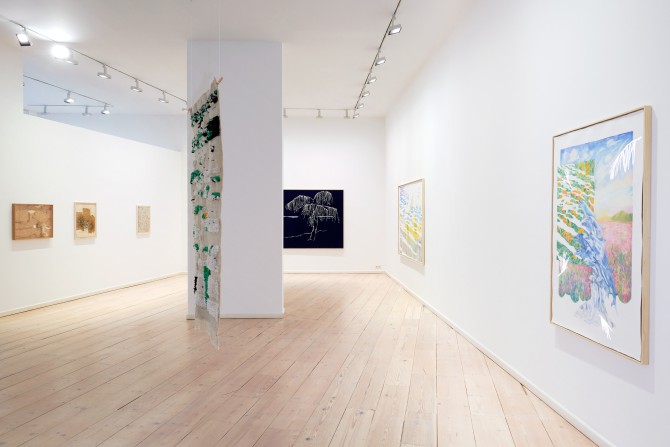
Exhibition view Galerie Georg Nothelfer. Photo: Katrin Rother
Lucia Kempkes, A Stream Of Thoughts To Detach Us From The Current #4, 2021, Chewing gum and reflective Gore-Tex on bus plush, 165 x 280 cm
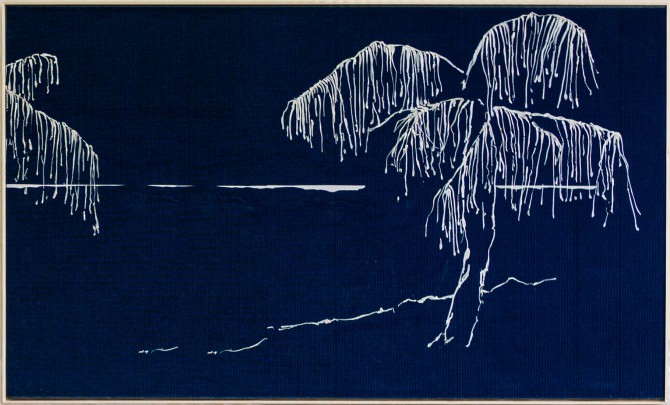
Lucia Kempkes, A Stream Of Thoughts To Detach Us From The Current #4, 2021, Chewing gum and reflective Gore-Tex on bus plush, 165 x 280 cm
Lucia Kempkes, To Protect us from what we seek, 2020, Handmade Carpet of wool and paraglider, 140 x 250 cm
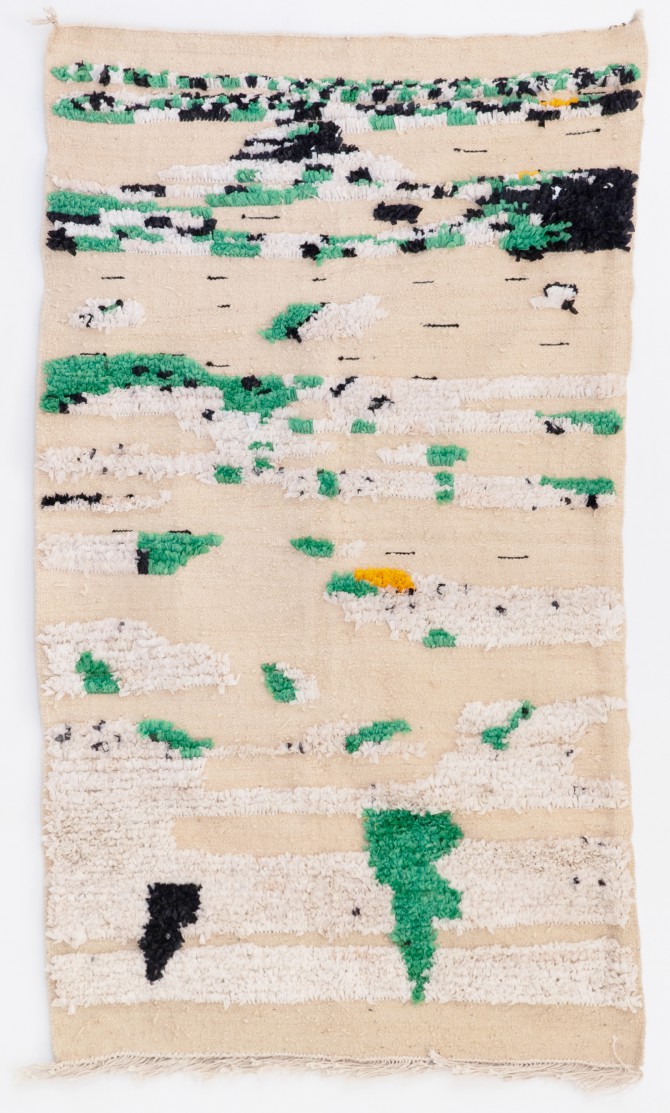
Lucia Kempkes, To Protect us from what we seek, 2020, Handmade Carpet of wool and paraglider, 140 x 250 cm
Lucia Kempkes, A Stream Of Thoughts To Detach Us From The Current #2, 2021, Color pencil and reflective Gore-Tex on paper, 152 x 235 cm
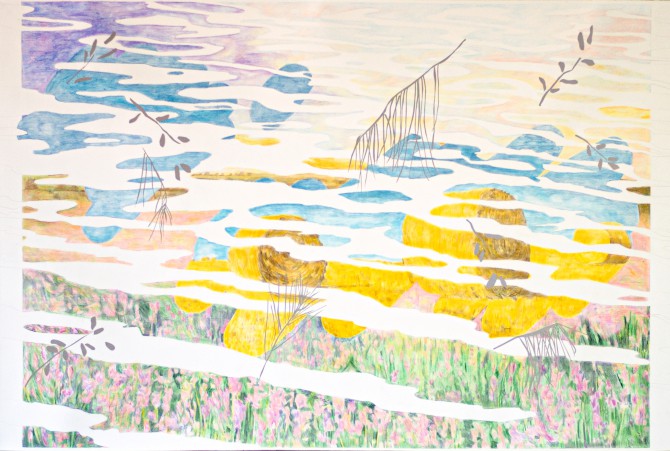
Lucia Kempkes, A Stream Of Thoughts To Detach Us From The Current #2, 2021, Color pencil and reflective Gore-Tex on paper, 152 x 235 cm
Exhibition view Galerie Georg Nothelfer. Nadine Fecht. Photo: Katrin Rother
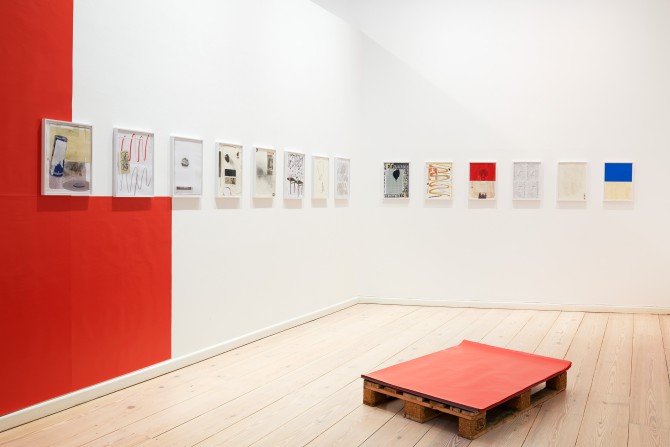
Exhibition view Galerie Georg Nothelfer. Nadine Fecht. Photo: Katrin Rother
Exhibition view Galerie Georg Nothelfer. Photo: Katrin Rother
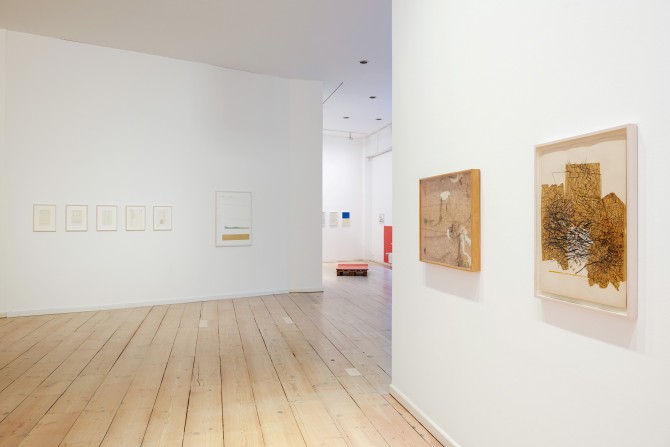
Exhibition view Galerie Georg Nothelfer. Photo: Katrin Rother
Miriam Salamander, Untitled, 2021, Washi in handmade abaca paper, 30 x 21 cm (SOLD)
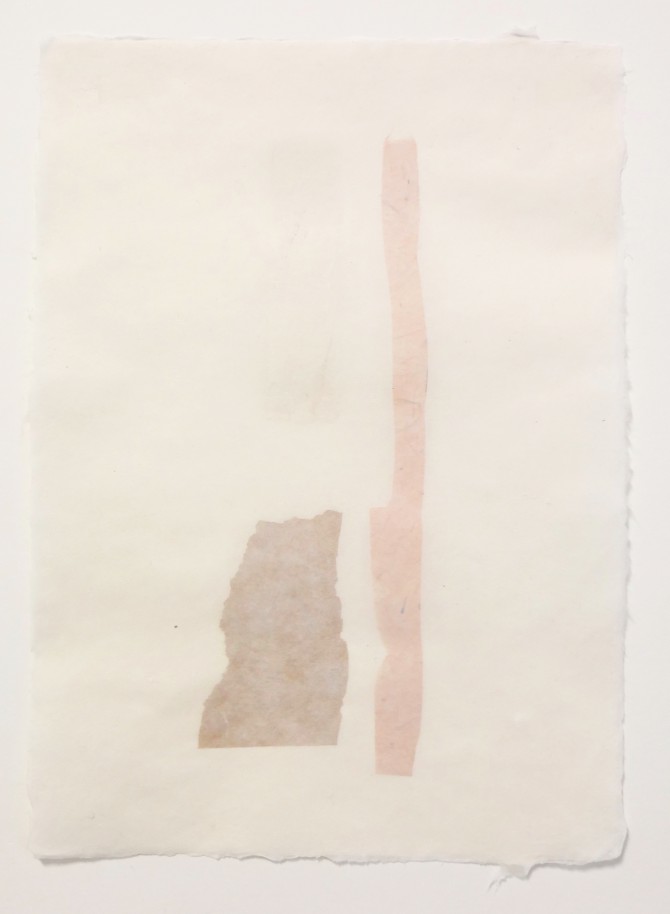
Miriam Salamander, Untitled, 2021, Washi in handmade abaca paper, 30 x 21 cm (SOLD)
Miriam Salamander, Untitled, 2021, Washi in handmade abaca paper, 30 x 21 cm
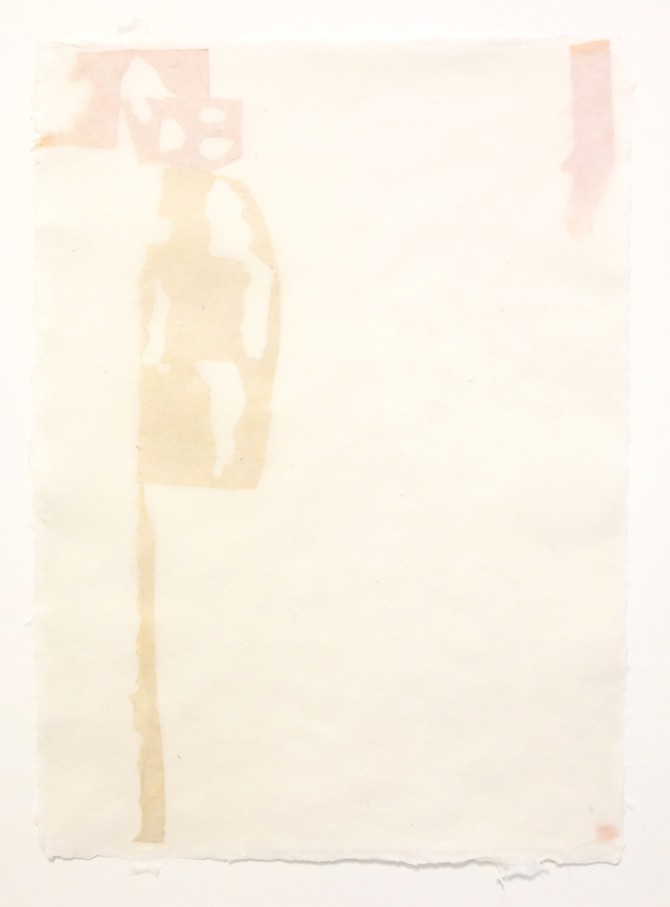
Miriam Salamander, Untitled, 2021, Washi in handmade abaca paper, 30 x 21 cm
Miriam Salamander, Fadenzeichnung III, November 2019, Thread drawing on hand made abaca paper, 25 x 16,5 cm (SOLD)
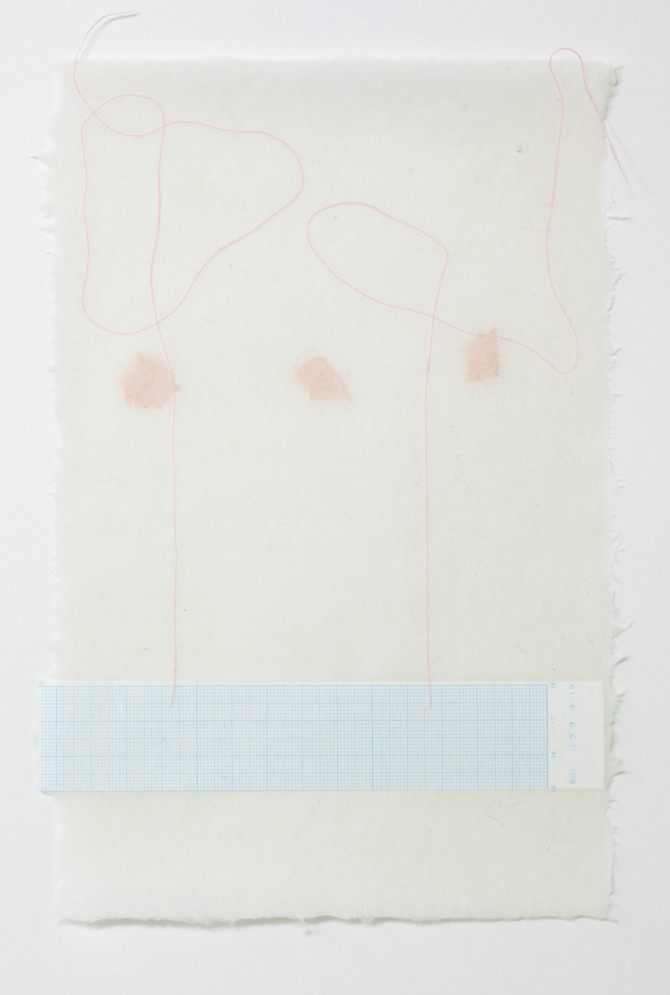
Miriam Salamander, Fadenzeichnung III, November 2019, Thread drawing on hand made abaca paper, 25 x 16,5 cm (SOLD)
Miriam Salamander, Fadenzeichnung VII, November 2019, Thread drawing on hand made abaca paper, 25 x 16,5 cm
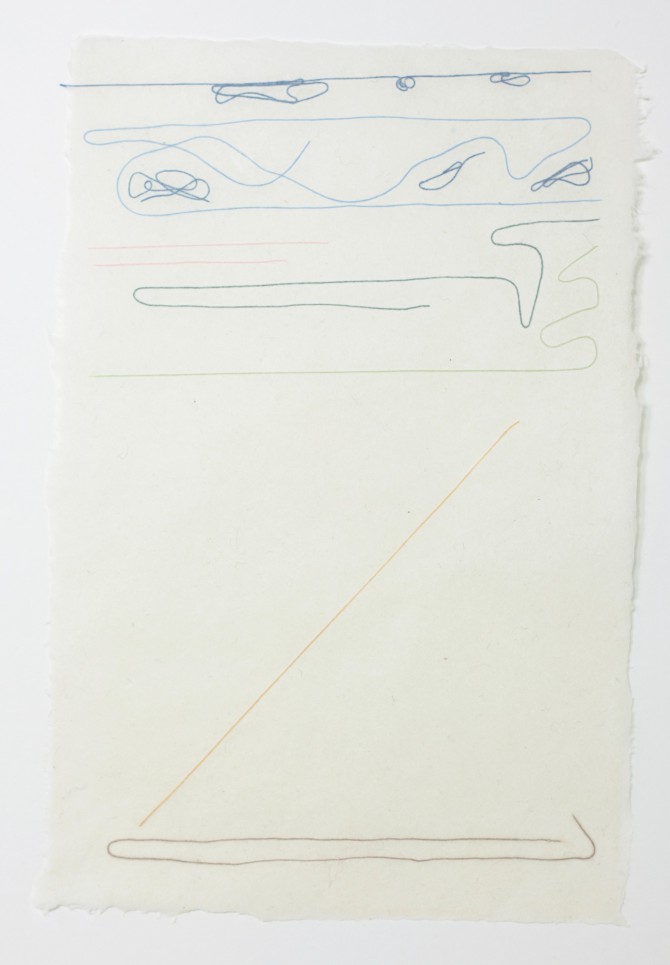
Miriam Salamander, Fadenzeichnung VII, November 2019, Thread drawing on hand made abaca paper, 25 x 16,5 cm
Miriam Salamander, Fadenzeichnung VIII, November 2019, Thread drawing on hand made abaca paper, 25 x 16,5 cm (SOLD)
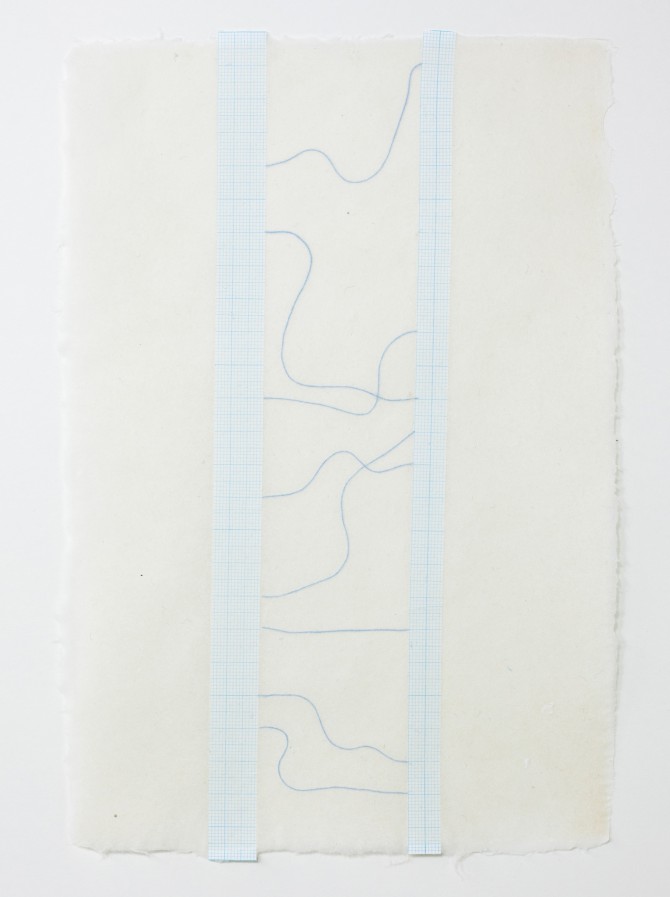
Miriam Salamander, Fadenzeichnung VIII, November 2019, Thread drawing on hand made abaca paper, 25 x 16,5 cm (SOLD)
Miriam Salamander, Hekan IV, 2019, Hand-colored drypoint etchings with chine collé on 270g BFK Rives, 100 x 70 cm (SOLD)
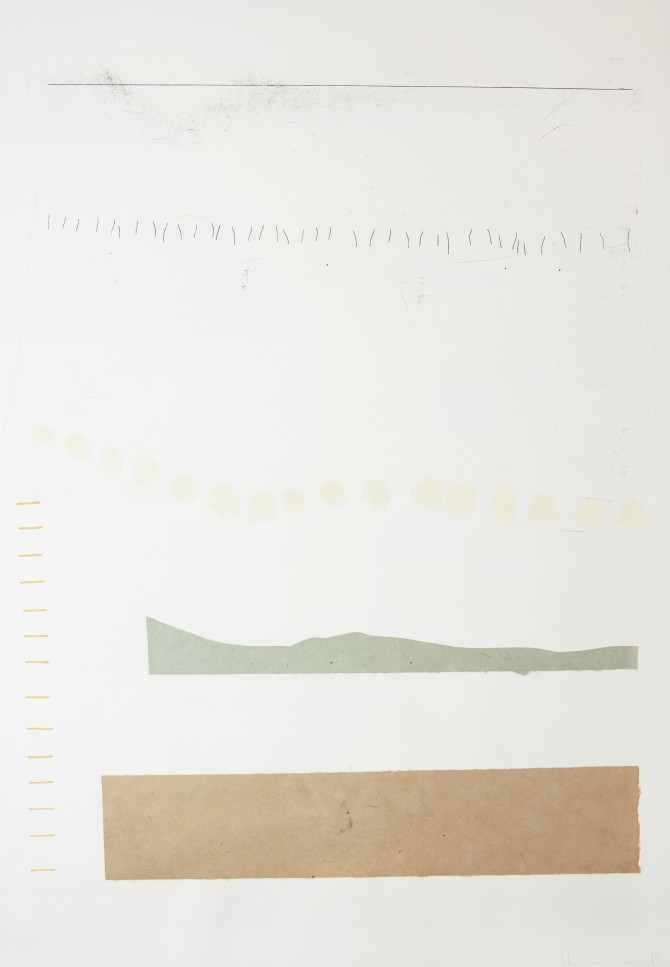
Miriam Salamander, Hekan IV, 2019, Hand-colored drypoint etchings with chine collé on 270g BFK Rives, 100 x 70 cm (SOLD)
Exhibition view Galerie Georg Nothelfer: Photo: Katrin Rother
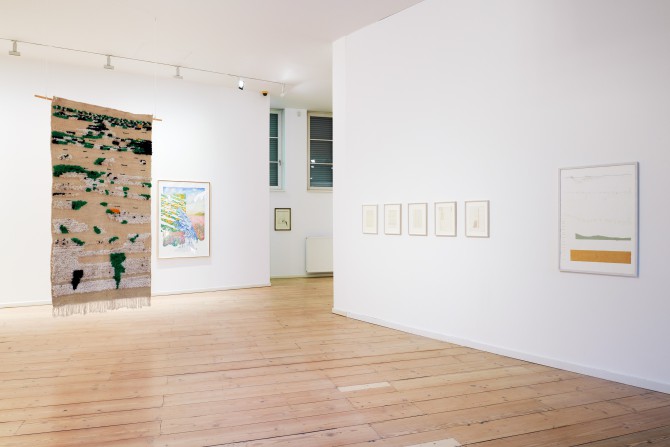
Exhibition view Galerie Georg Nothelfer: Photo: Katrin Rother
Exhibition view Galerie Georg Nothelfer. Lucia Kempkes. Photo: Katrin Rother
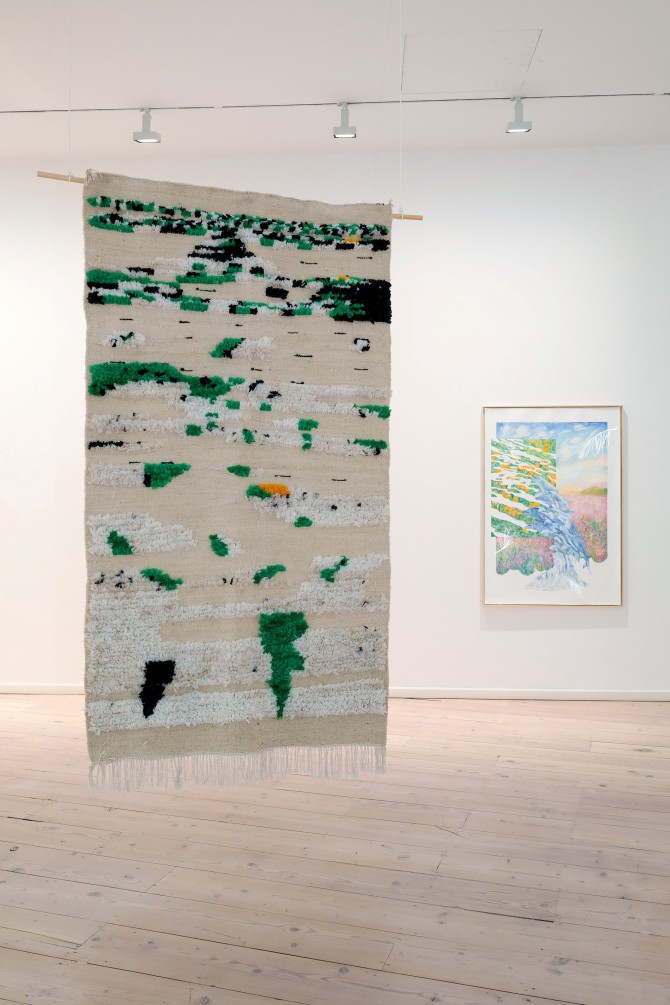
Exhibition view Galerie Georg Nothelfer. Lucia Kempkes. Photo: Katrin Rother
Lucia Kempkes, A Stream Of Thoughts To Detach Us From The Current #21 , 2022, color pencil and reflective Gore-Tex on paper, 152 x 102 cm
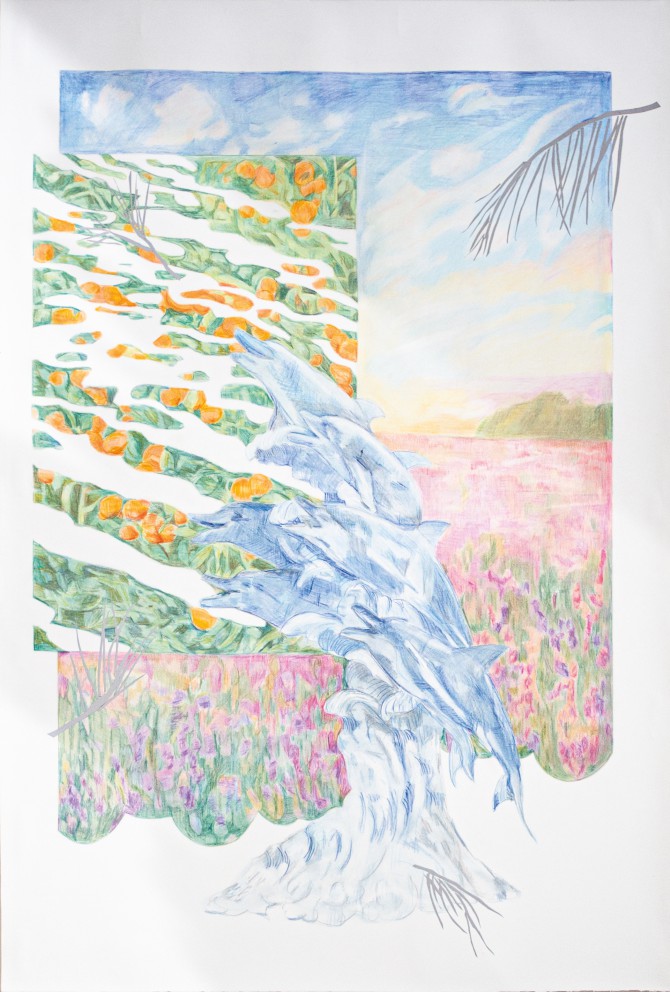
Lucia Kempkes, A Stream Of Thoughts To Detach Us From The Current #21 , 2022, color pencil and reflective Gore-Tex on paper, 152 x 102 cm
Exhibition view Galerie Georg Nothelfer. Photo: Katrin Rother
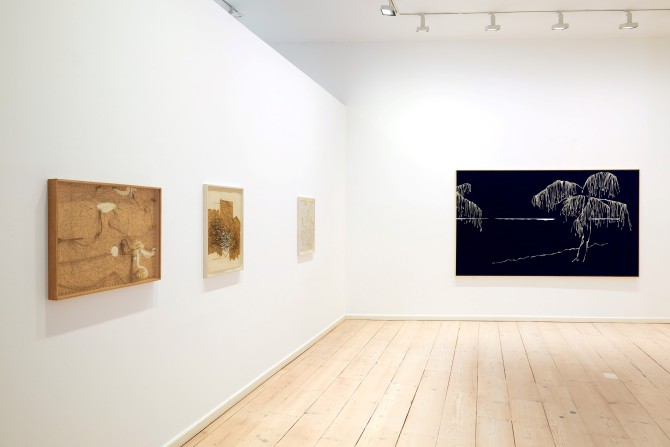
Exhibition view Galerie Georg Nothelfer. Photo: Katrin Rother
Gerhard Hoehme, Um her, 1964-75, Acrylic/cord on sewing pattern, 57,4 x 74 cm
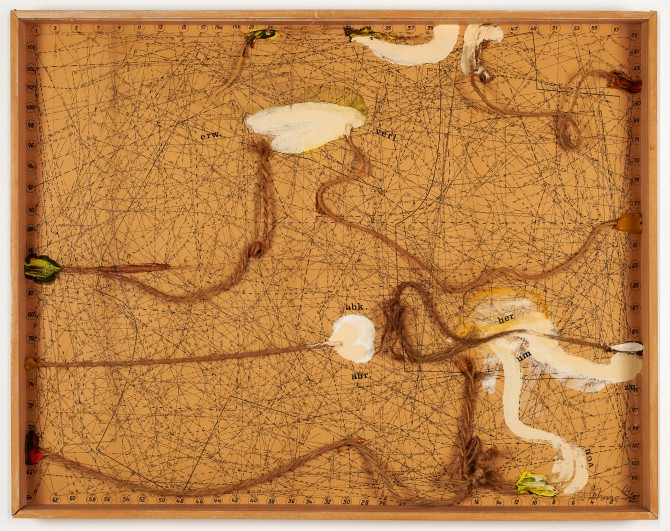
Gerhard Hoehme, Um her, 1964-75, Acrylic/cord on sewing pattern, 57,4 x 74 cm
Gerhard Hoehme, Untitled, 1963, Mixed media/collage/paper, 64 x 49,5 cm
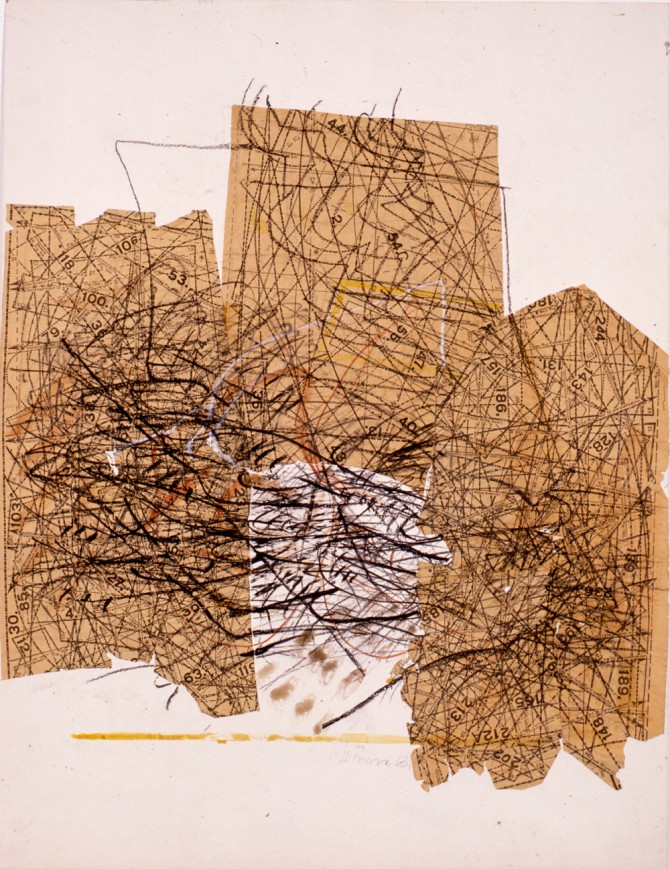
Gerhard Hoehme, Untitled, 1963, Mixed media/collage/paper, 64 x 49,5 cm
Gerhard Hoehme, Landmessung, 1961, Mixed media/tape on Japan paper, 60,5 x 43,3 cm
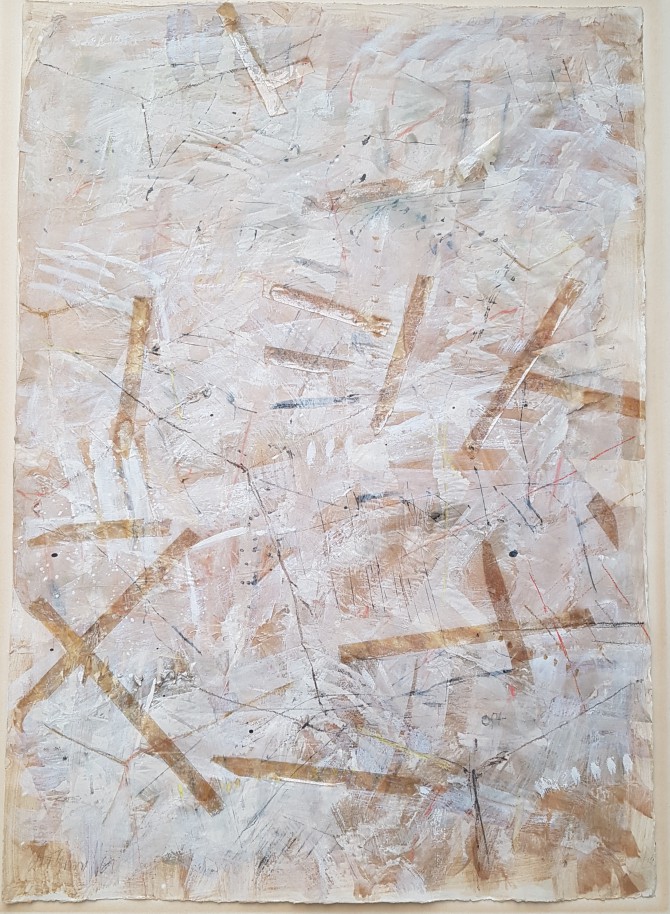
Gerhard Hoehme, Landmessung, 1961, Mixed media/tape on Japan paper, 60,5 x 43,3 cm
Exhibition view Galerie Georg Nothelfer. Gerhard Hoehme. Photo: Katrin Rother
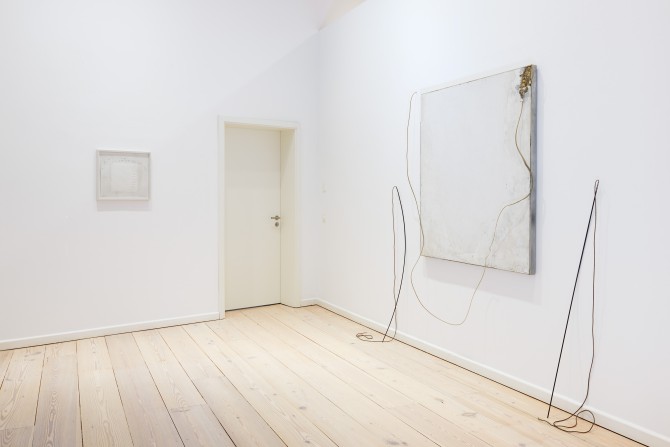
Exhibition view Galerie Georg Nothelfer. Gerhard Hoehme. Photo: Katrin Rother
Gerhard Hoehme, Untitled, 1971, Collage/canvas/paper, 39,5 x 45 cm
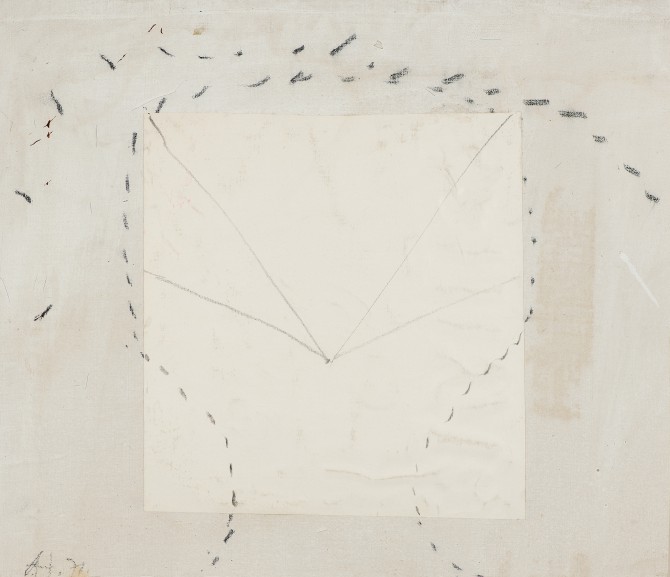
Gerhard Hoehme, Untitled, 1971, Collage/canvas/paper, 39,5 x 45 cm
Gerhard Hoehme, Das Peitschenbild, 1977, Acrylic on wood/PE, sensors/photography, ca. 200 x 190 cm
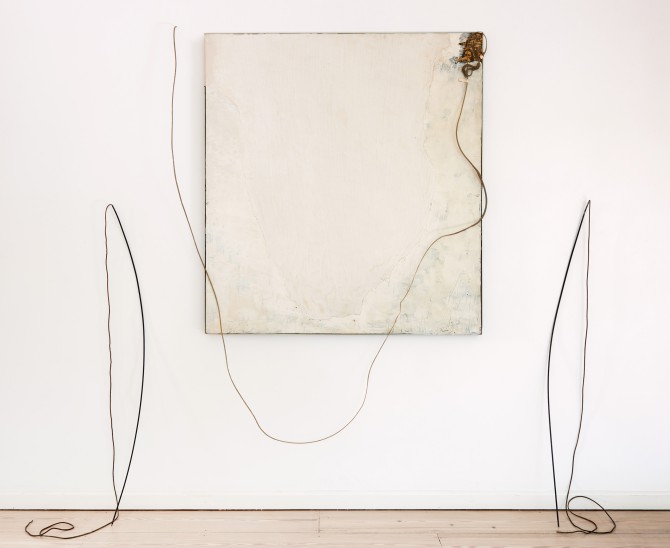
Gerhard Hoehme, Das Peitschenbild, 1977, Acrylic on wood/PE, sensors/photography, ca. 200 x 190 cm
Exhibition view Galerie Georg Nothelfer. Jan Voss. Photo: Katrin Rother
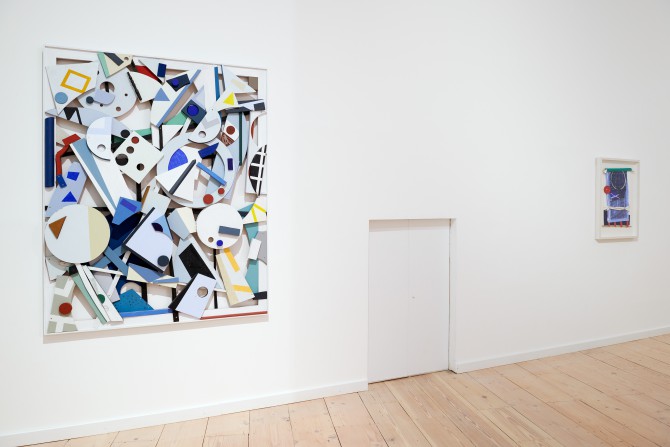
Exhibition view Galerie Georg Nothelfer. Jan Voss. Photo: Katrin Rother
Jan Voss, Untitled, 2012, Assemblage, wood/acrylic, 172 x 132 cm
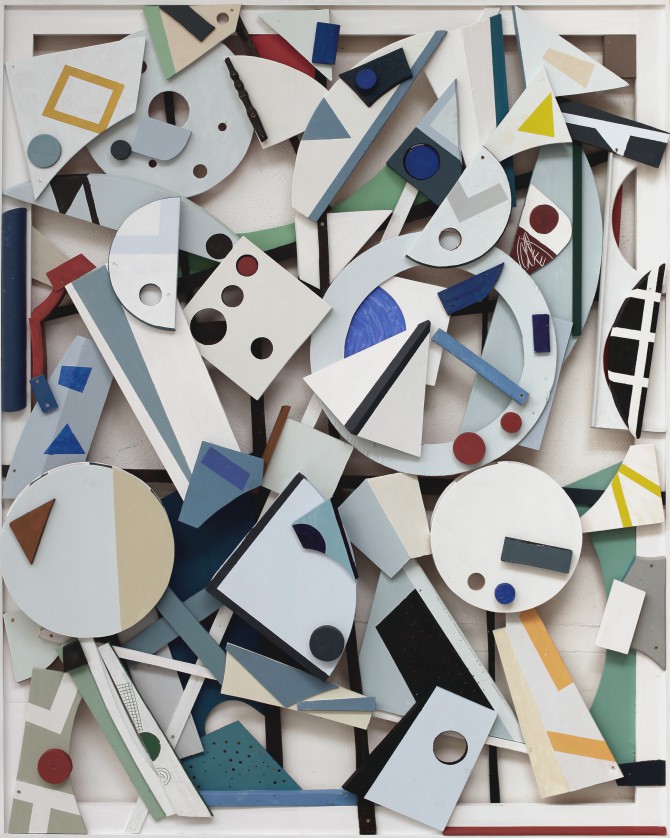
Jan Voss, Untitled, 2012, Assemblage, wood/acrylic, 172 x 132 cm
Jan Voss, Untitled, 2022, Mixed media/collage, 80 x 60 cm
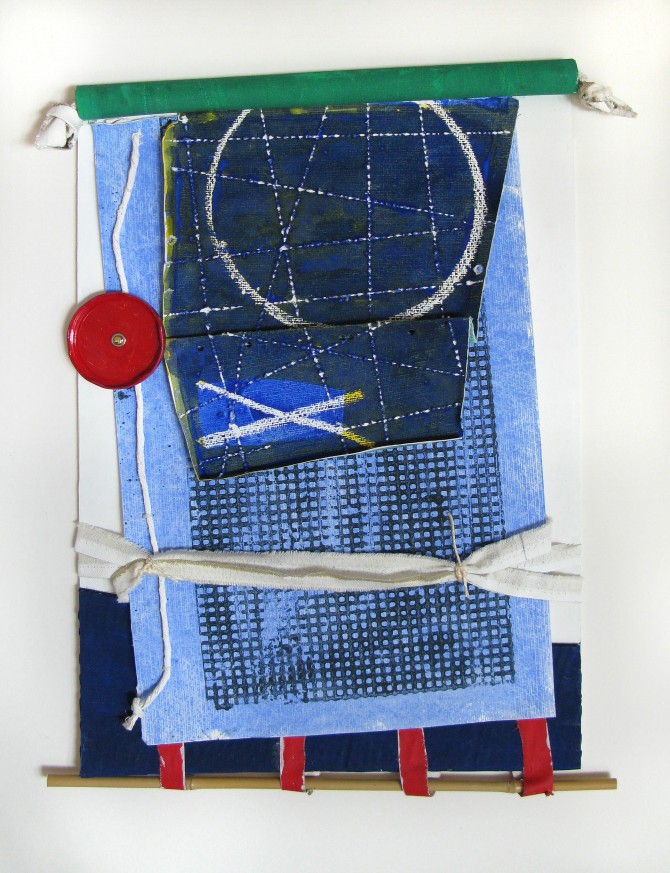
Jan Voss, Untitled, 2022, Mixed media/collage, 80 x 60 cm
Exhibition view Galerie Georg Nothelfer. Jan Voss. Photo: Katrin Rother
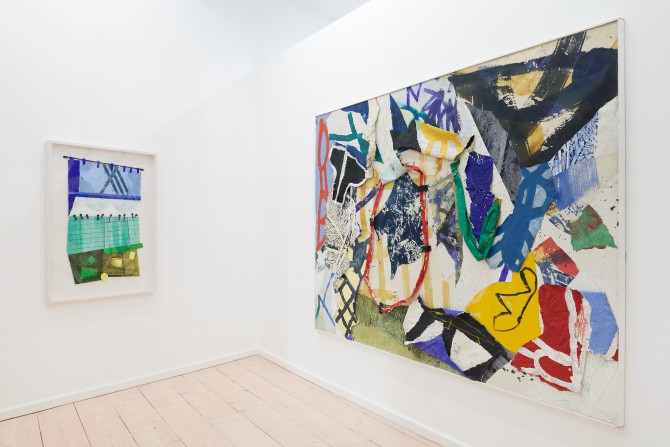
Exhibition view Galerie Georg Nothelfer. Jan Voss. Photo: Katrin Rother
Jan Voss, Untitled, 2021, Mixed media/collage, 106 x 71 cm
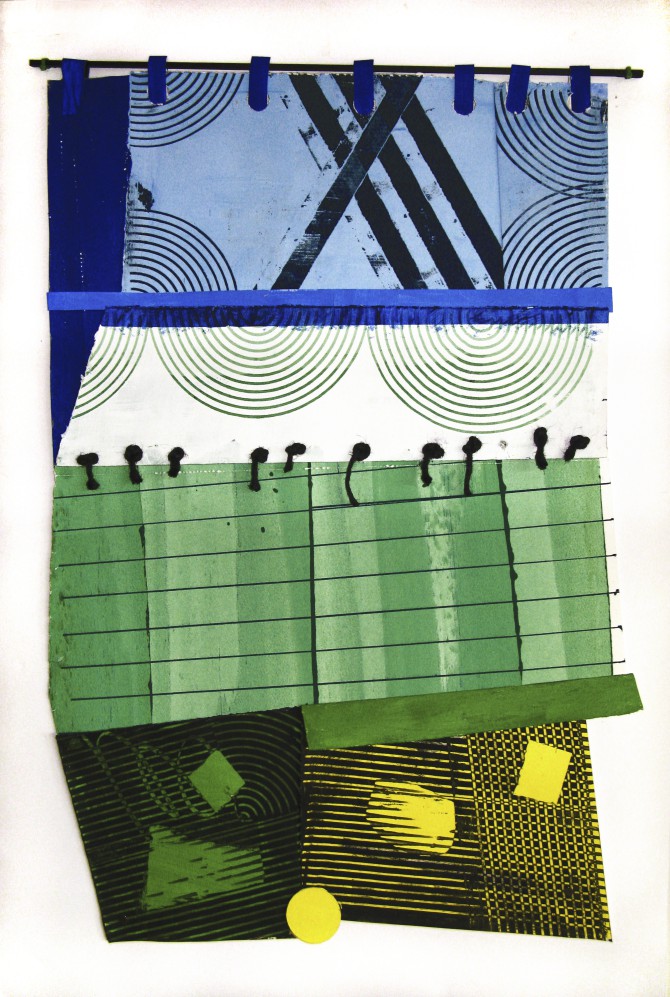
Jan Voss, Untitled, 2021, Mixed media/collage, 106 x 71 cm
Jan Voss, Untitled, 1987, Mixed media/collage/canvas, 195 x 280 cm
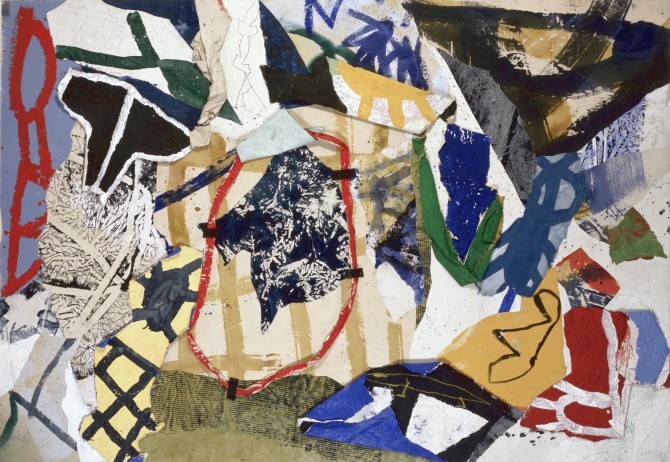
Jan Voss, Untitled, 1987, Mixed media/collage/canvas, 195 x 280 cm
Exhibition view Galerie Georg Nothelfer. Michael Buthe. Photo Katrin Rother
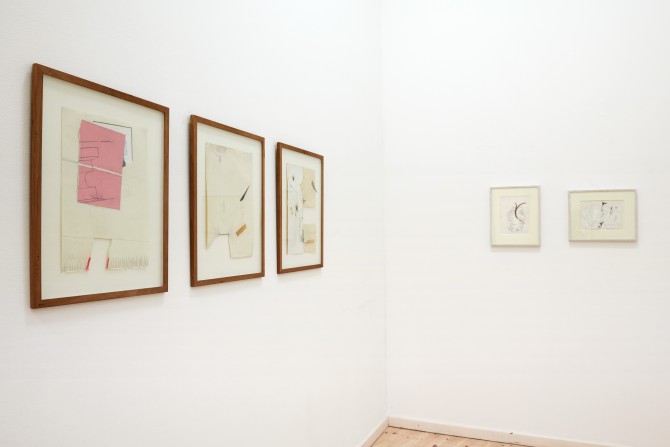
Exhibition view Galerie Georg Nothelfer. Michael Buthe. Photo Katrin Rother
Michael Buthe, Aus dem Leben eines Bienenkönigs, 1975, Mixed media/collage/paper, 16,2 x 23,5 cm
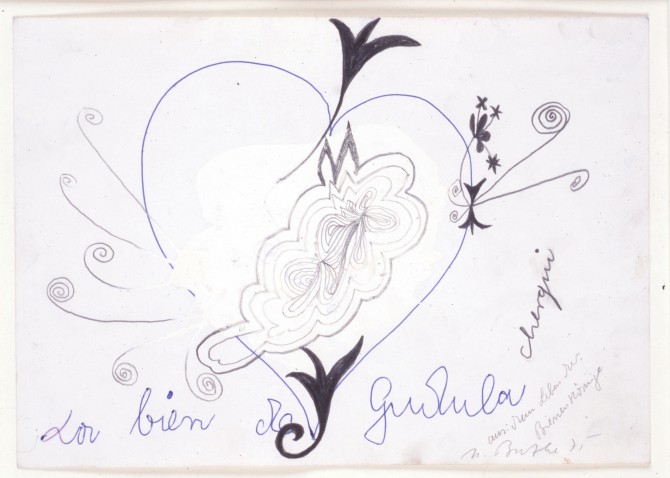
Michael Buthe, Aus dem Leben eines Bienenkönigs, 1975, Mixed media/collage/paper, 16,2 x 23,5 cm
Michael Buthe, Aus dem Leben eines Bienenkönigs, 1975, Mixed media/collage/paper, 23,5 x 16,2 cm
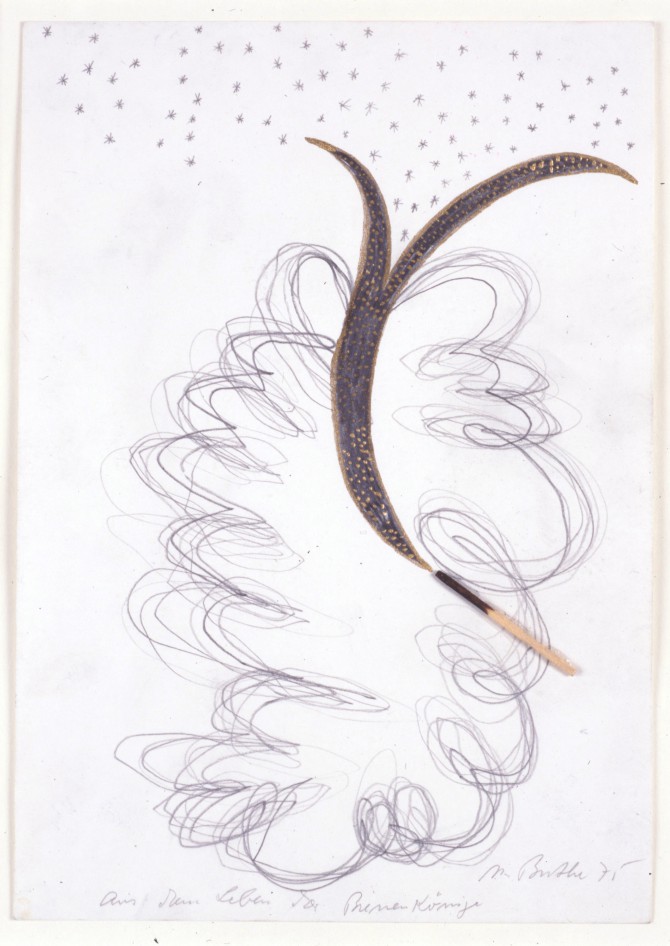
Michael Buthe, Aus dem Leben eines Bienenkönigs, 1975, Mixed media/collage/paper, 23,5 x 16,2 cm
Michael Buthe, Untitled, 1967, Mixed media/collage/paper, 29 x 42 cm
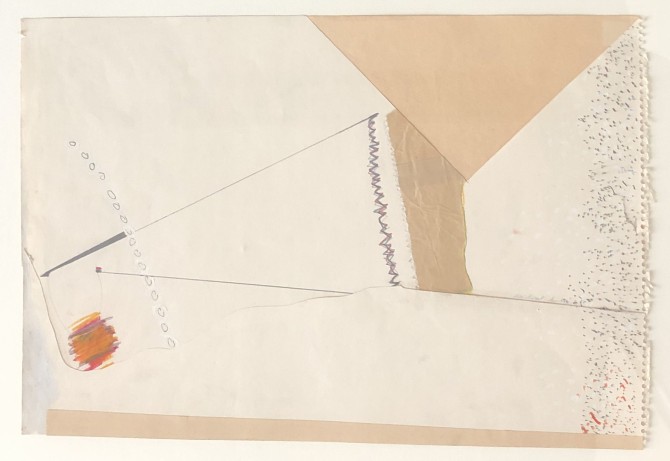
Michael Buthe, Untitled, 1967, Mixed media/collage/paper, 29 x 42 cm
Michael Buthe, Untitled, 1967, Mixed media/collage/paper, 42 x 29 cm
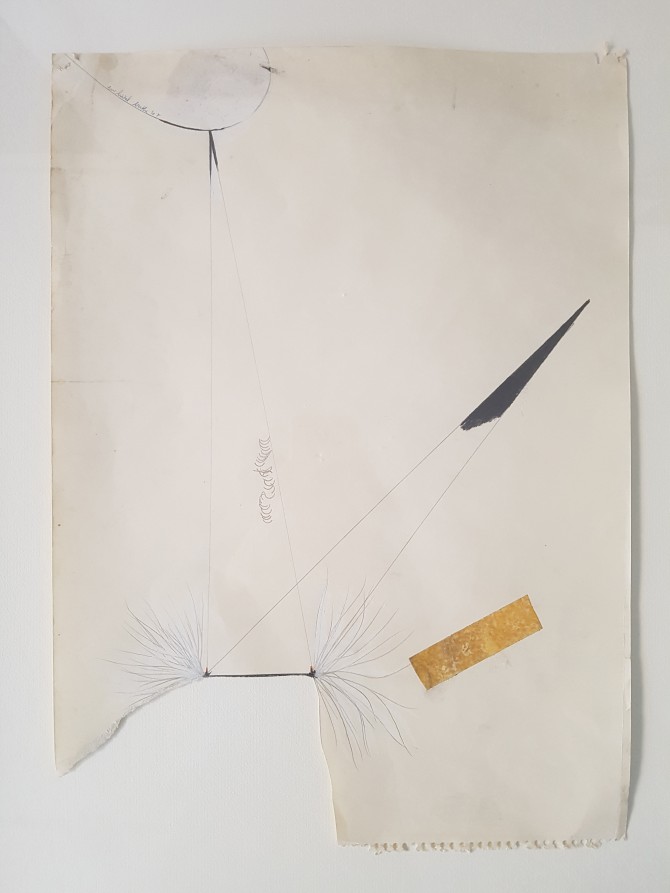
Michael Buthe, Untitled, 1967, Mixed media/collage/paper, 42 x 29 cm
Michael Buthe, Untitled, 1968, Mixed media/collage/paper, 42 x 29 cm
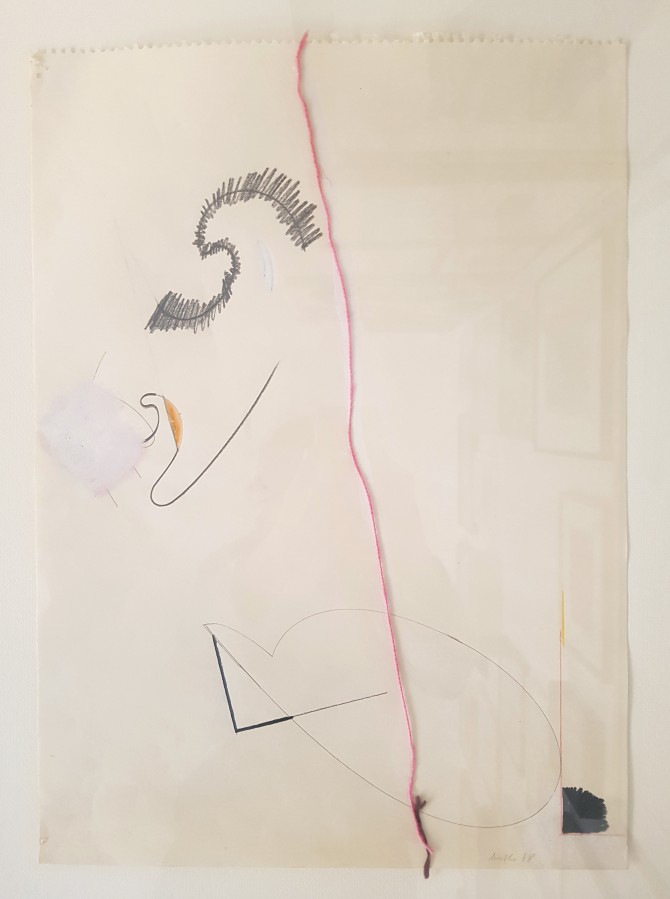
Michael Buthe, Untitled, 1968, Mixed media/collage/paper, 42 x 29 cm
Michael Buthe, Untitled, 1968, Mixed media/collage/paper, 42 x 29 cm
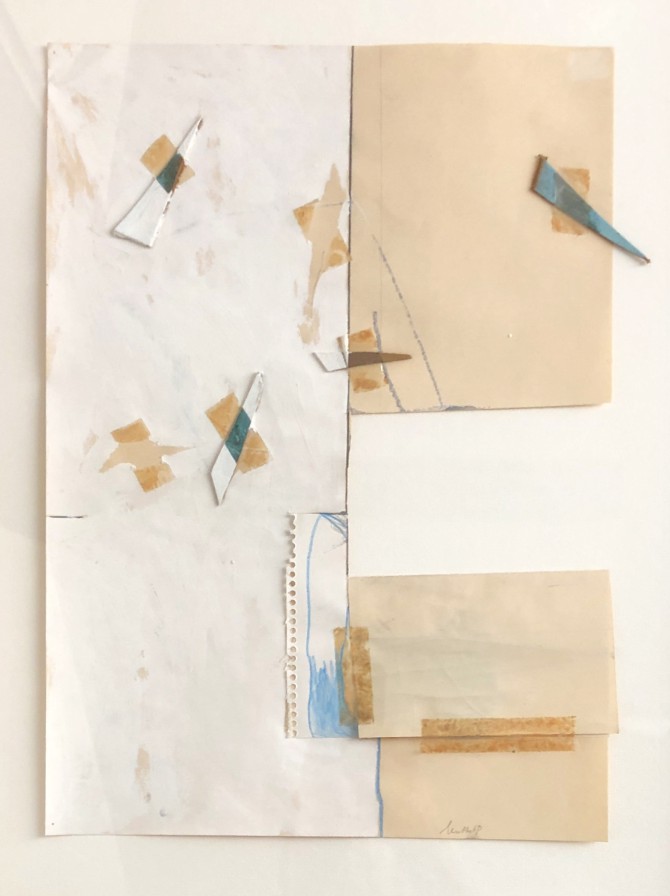
Michael Buthe, Untitled, 1968, Mixed media/collage/paper, 42 x 29 cm
Exhibition view Galerie Georg Nothelfer. Elmira Iravanizad. Photo: Katrin Rother
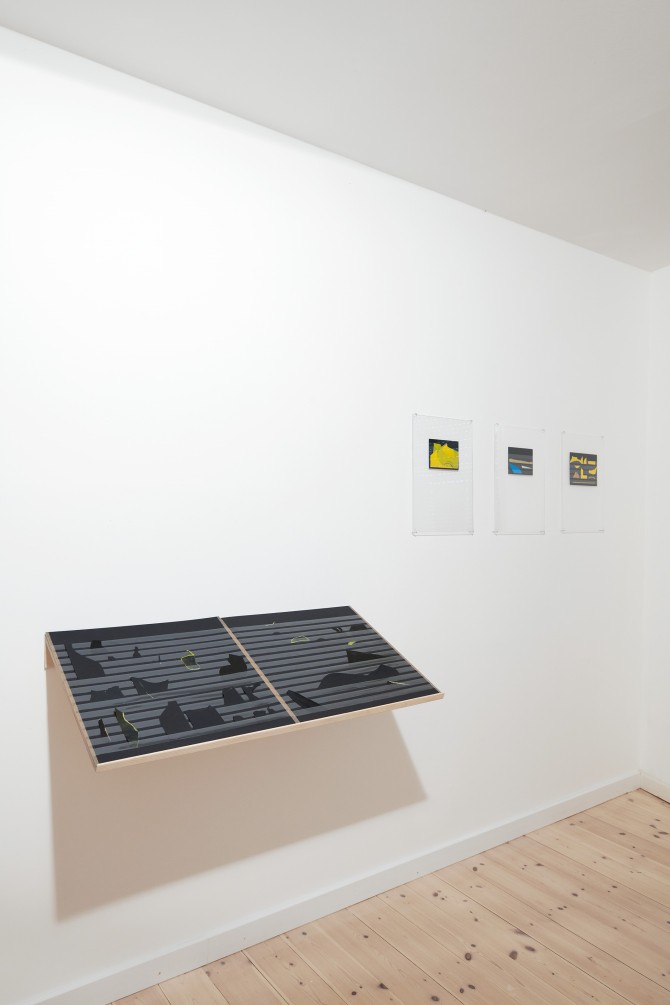
Exhibition view Galerie Georg Nothelfer. Elmira Iravanizad. Photo: Katrin Rother
Elmira Iravanizad, Document No. 12, 2022, Collage and pen, 50 x 50 cm
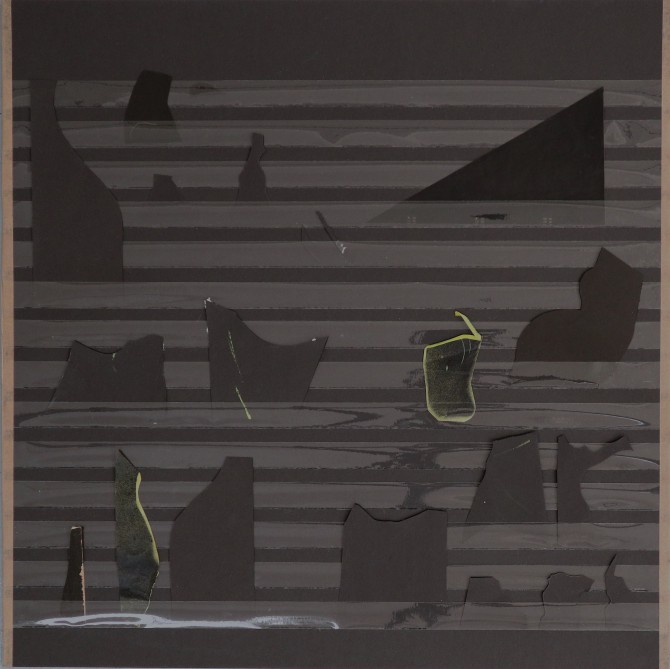
Elmira Iravanizad, Document No. 12, 2022, Collage and pen, 50 x 50 cm
Elmira Iravanizad, Document No. 13, 2022, Collage and pen, 50 x 50 cm
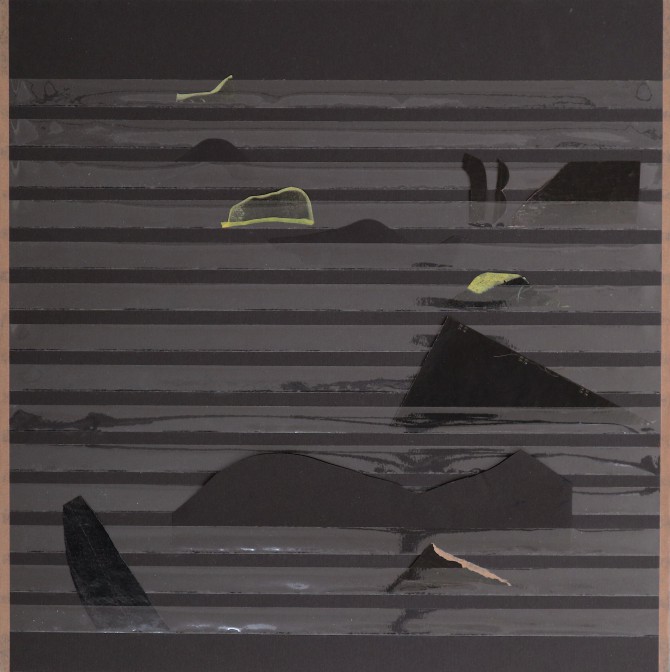
Elmira Iravanizad, Document No. 13, 2022, Collage and pen, 50 x 50 cm
Elmira Iravanizad, Document No. 8, 2021, Collage and pen, 10 x 15 cm
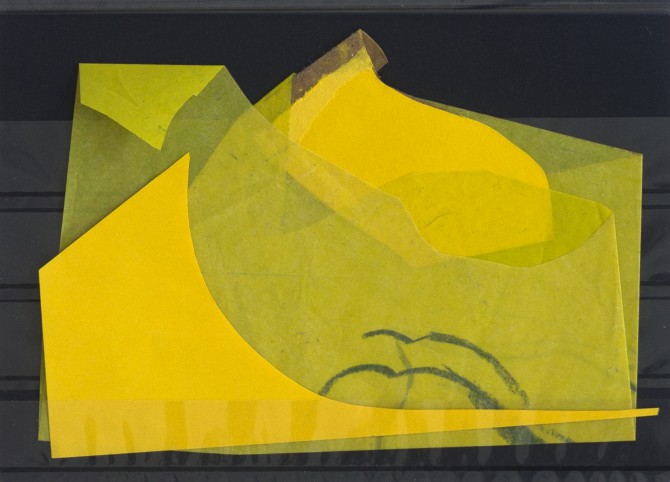
Elmira Iravanizad, Document No. 8, 2021, Collage and pen, 10 x 15 cm
Elmira Iravanizad, Document No. 11, 2021, Collage and pen, 10 x 15 cm
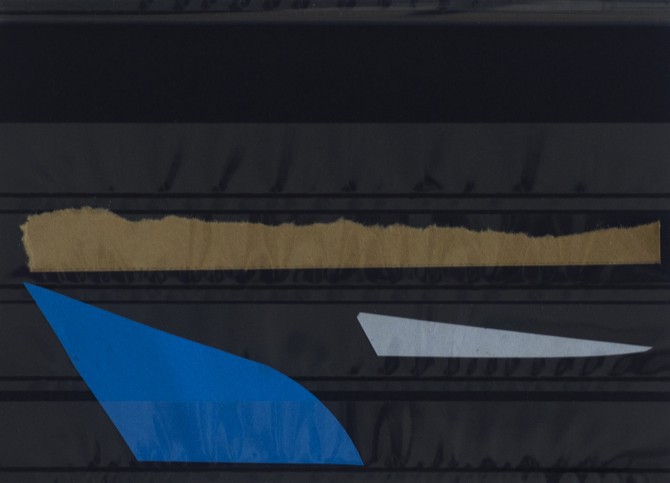
Elmira Iravanizad, Document No. 11, 2021, Collage and pen, 10 x 15 cm
Exhibition view Galerie Georg Nothelfer. Elmira Iravanizad. Photo: Katrin Rother
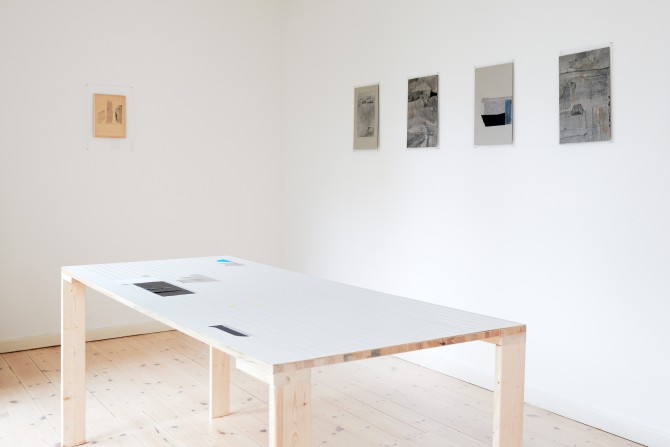
Exhibition view Galerie Georg Nothelfer. Elmira Iravanizad. Photo: Katrin Rother
Elmira Iravanizad, Image No. 2, 2022, Collage and tape, 42 x 29,5 cm
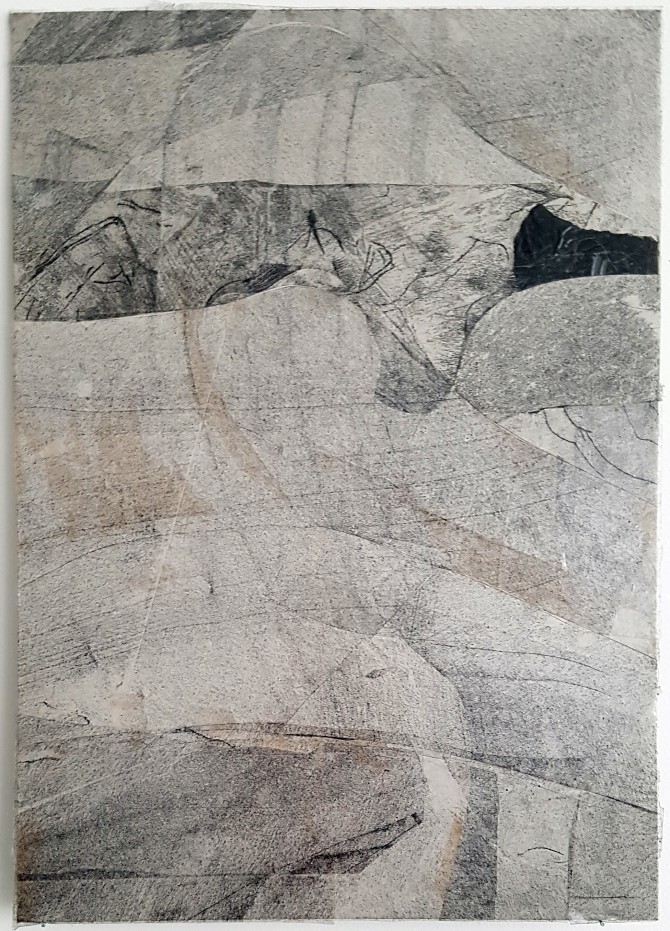
Elmira Iravanizad, Image No. 2, 2022, Collage and tape, 42 x 29,5 cm
Elmira Iravanizad, Image No.14, 2022, Collage and tape, 42 x 29,5 cm
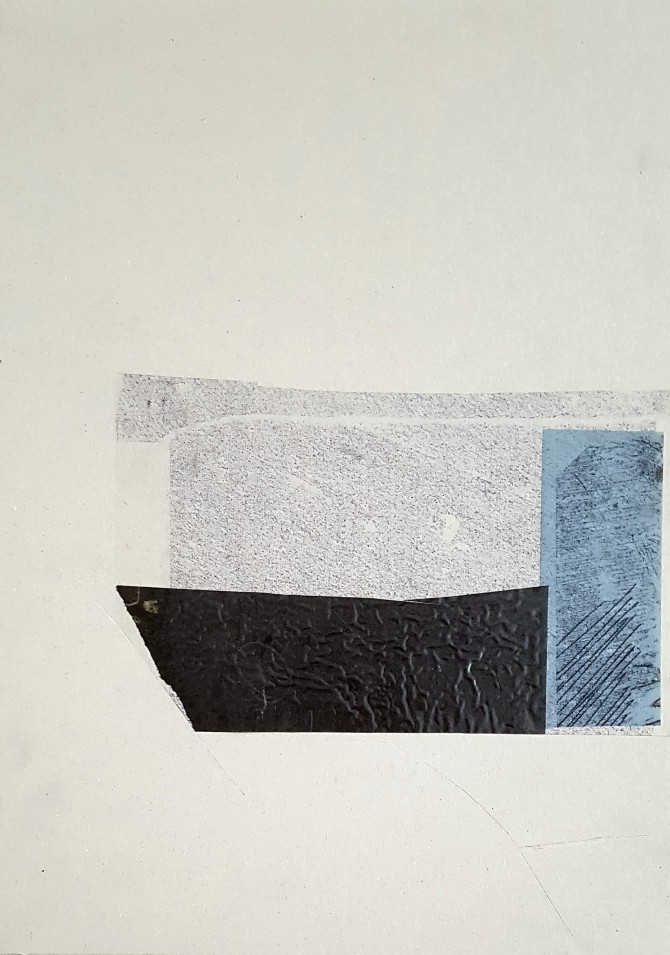
Elmira Iravanizad, Image No.14, 2022, Collage and tape, 42 x 29,5 cm
Elmira Iranvanizad, Image No. 4, 2022, Collage and pen, 29 x 42 cm
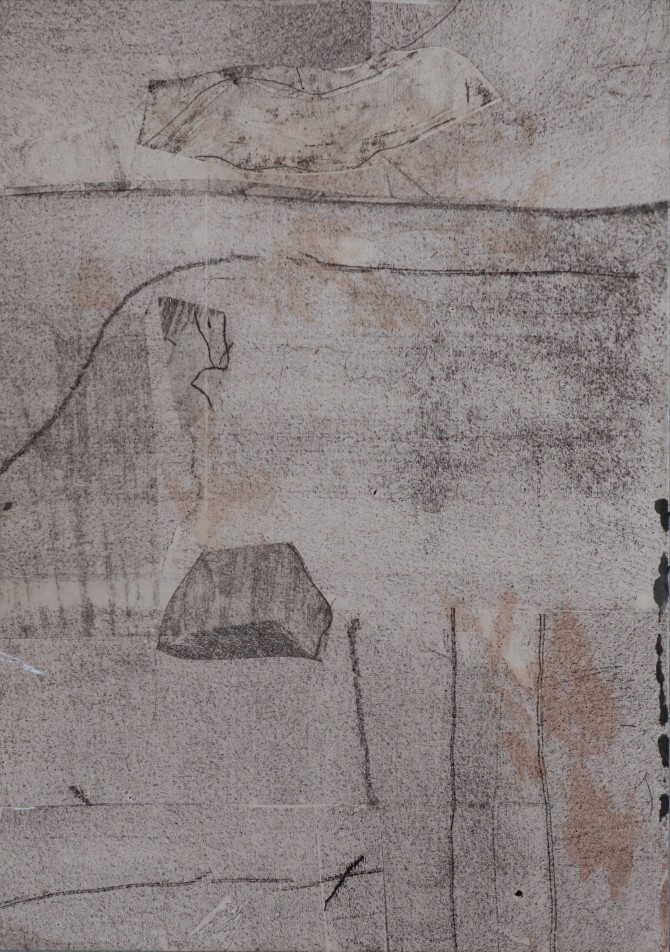
Elmira Iranvanizad, Image No. 4, 2022, Collage and pen, 29 x 42 cm
Elmira Iravanizad, 2022, Document No.17, Collage and pen, 100 x 75 cm
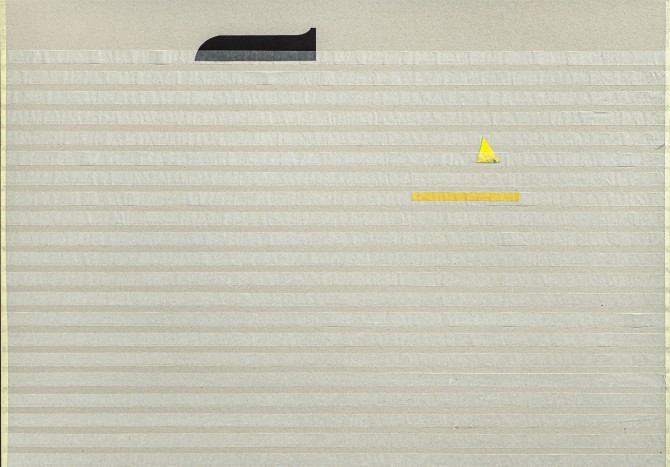
Elmira Iravanizad, 2022, Document No.17, Collage and pen, 100 x 75 cm
Elmira Iravanizad, 2022, Document No. 16, Collage and pen, 100 x 75 cm
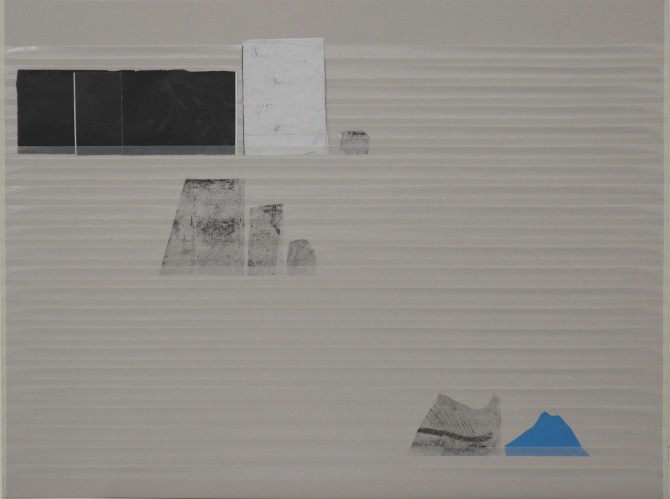
Elmira Iravanizad, 2022, Document No. 16, Collage and pen, 100 x 75 cm
Exhibition view Showroom Galerie Georg Nothelfer. Photo: Katrin Rother
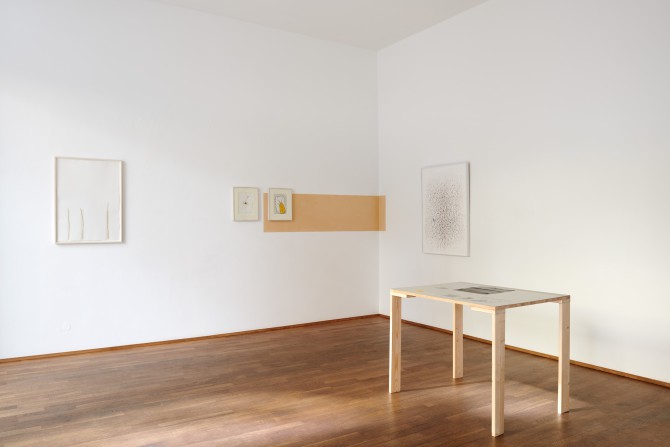
Exhibition view Showroom Galerie Georg Nothelfer. Photo: Katrin Rother
Miriam Salamander, Untitled, 2021, Colored embossing and collage on 300 g Hahnemühle paper, 78 x 56 cm (SOLD)
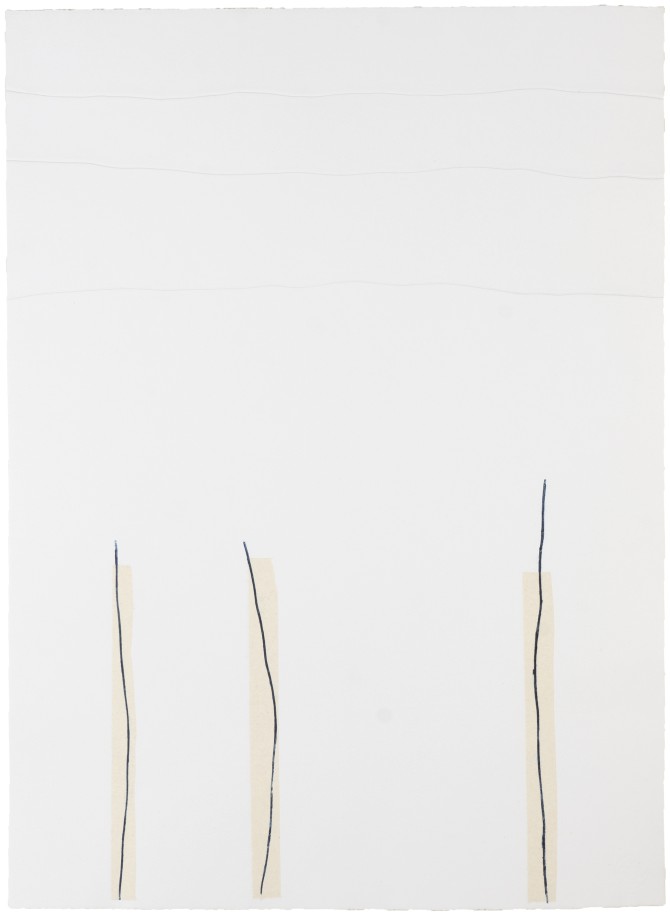
Miriam Salamander, Untitled, 2021, Colored embossing and collage on 300 g Hahnemühle paper, 78 x 56 cm (SOLD)
Michael Buthe, Aus Dem Leben eines Bienenkönigs, 1975, Mixed media/collage/paper, 23,5 x 16,2cm (SOLD)
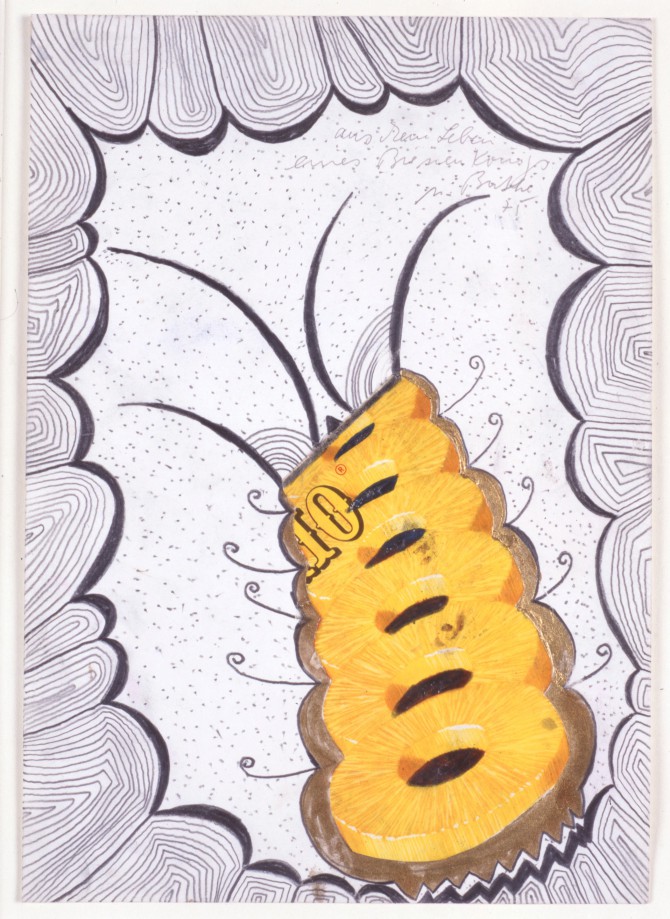
Michael Buthe, Aus Dem Leben eines Bienenkönigs, 1975, Mixed media/collage/paper, 23,5 x 16,2cm (SOLD)
Michael Buthe, Aus dem Leben eines Bienenkönigs, 1975, Mixed media/collage/paper, 23,5 x 16,2 cm
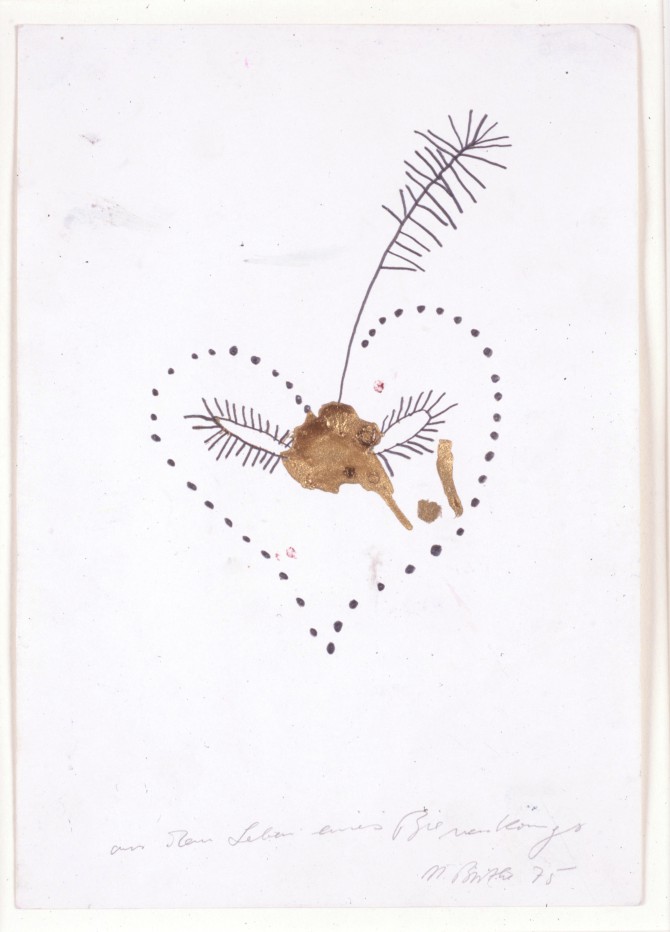
Michael Buthe, Aus dem Leben eines Bienenkönigs, 1975, Mixed media/collage/paper, 23,5 x 16,2 cm
Elmira Iravanizad, Document No. 16, 2022, Collage and pen, 100 x 75 cm

Elmira Iravanizad, Document No. 16, 2022, Collage and pen, 100 x 75 cm
Exhibition view Showroom Galerie Georg Nothelfer. Photo: Katrin Rother
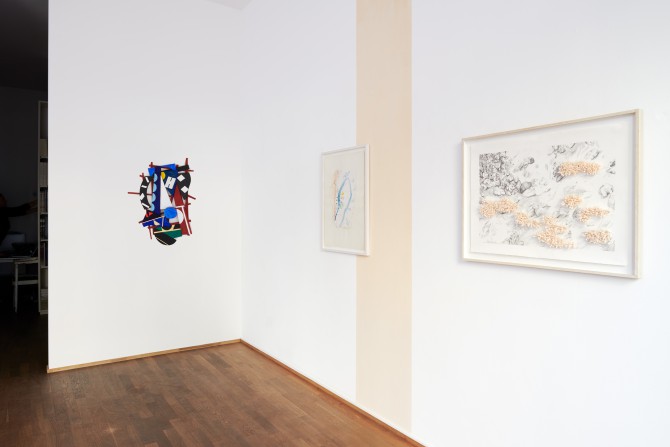
Exhibition view Showroom Galerie Georg Nothelfer. Photo: Katrin Rother
Jan Voss, Untitled, 2008, Assemblage, Acrylic paint, Wood, 90 x 67 x 9 cm
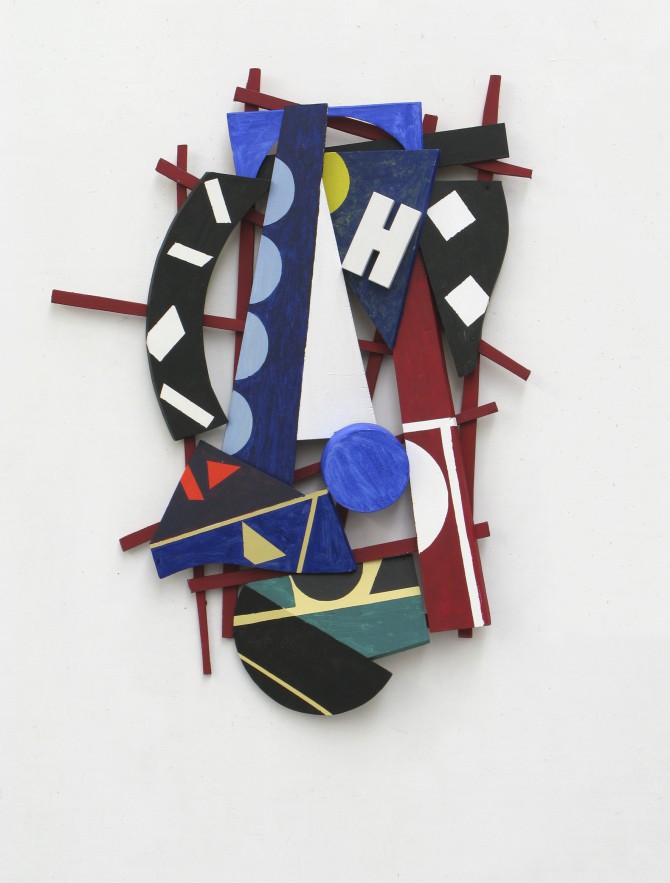
Jan Voss, Untitled, 2008, Assemblage, Acrylic paint, Wood, 90 x 67 x 9 cm
Gerhard Hoehme, Untitled, 1970, Mixed media, Collage on paper, 49 x 69 cm
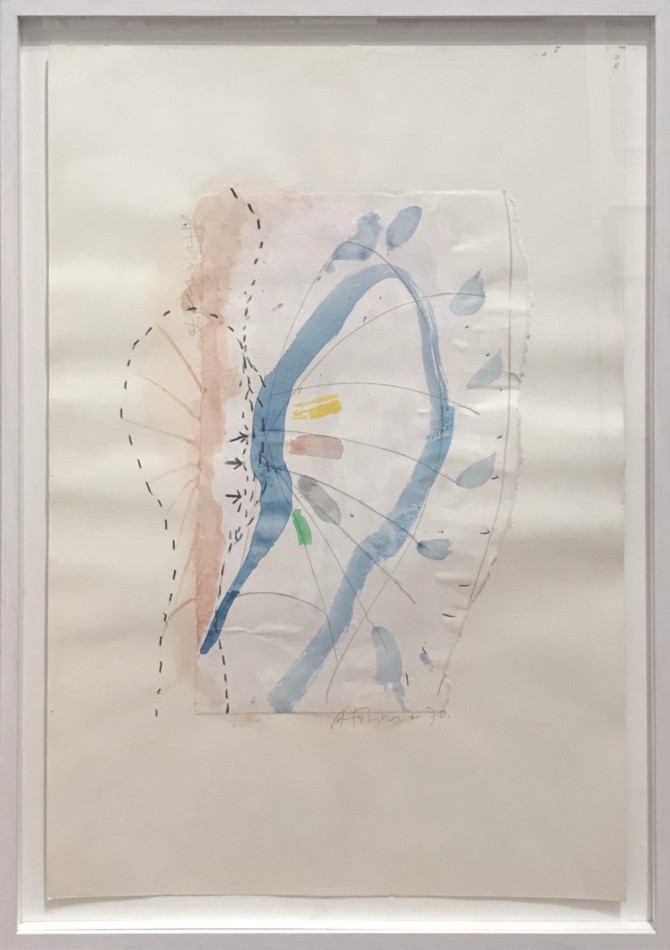
Gerhard Hoehme, Untitled, 1970, Mixed media, Collage on paper, 49 x 69 cm
Lucia Kempkes, I Wish I Could Climb #9, 2019, Graphite on paper an hand-tufted carpet, 57 x 77 cm
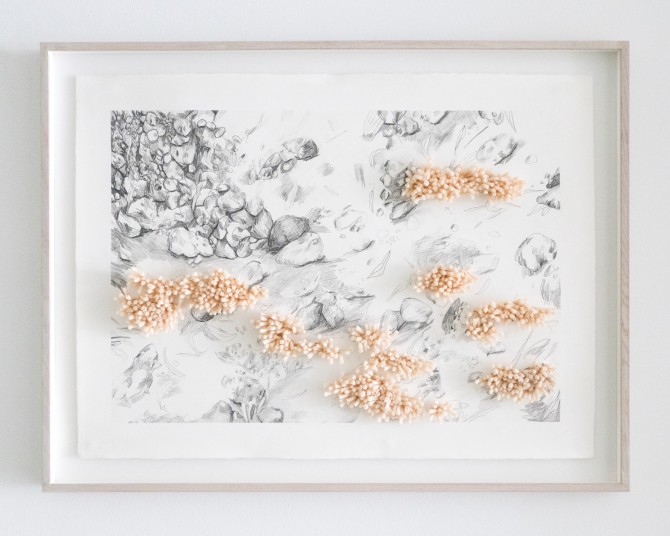
Lucia Kempkes, I Wish I Could Climb #9, 2019, Graphite on paper an hand-tufted carpet, 57 x 77 cm
Miriam Salamander, Untitled, 2021, Drawing and handmade Abaca paper on 270g BFK Rives, 100 x 70 cm
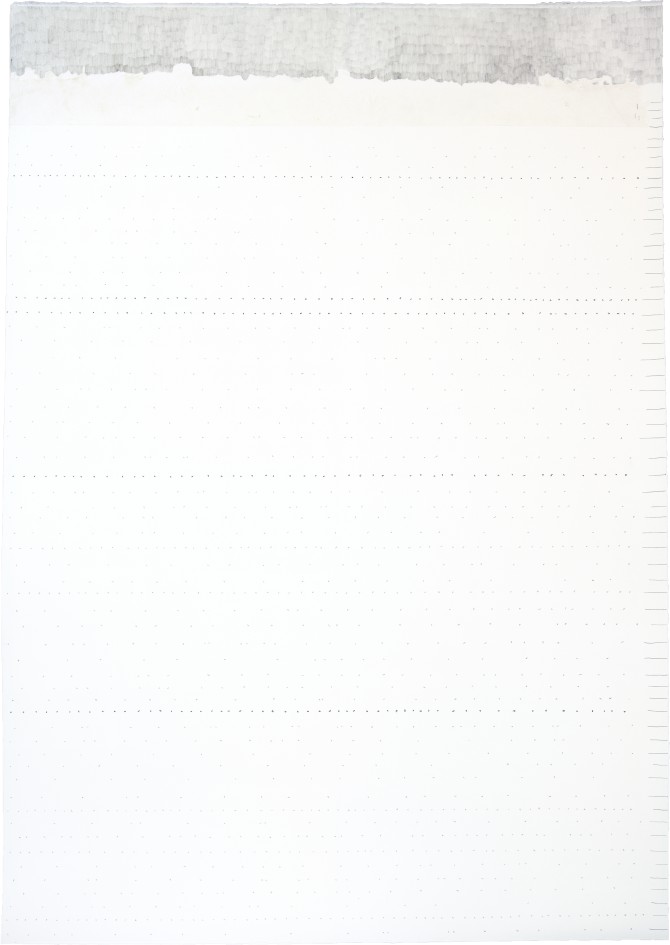
Miriam Salamander, Untitled, 2021, Drawing and handmade Abaca paper on 270g BFK Rives, 100 x 70 cm
OPENING
Wednesday, September 14, 18.00 - 21.00 h
September 15 - November 12, 2022
Collage - although a medium as old as the last century - seems to be the medium of the hour. In the ubiquitous copy-paste gesture, anything can be combined with anything, as long as it can be received in the mode of the pictorial. And since the visual fragmentation of reality has progressed to almost infinity, it seems impossible to perceive the individual particles in context. We only see the splinters of the mirror cabinet in whose shards we have multiplied ourselves. The resulting reflex of a cultural pessimistic lament, however, fails to recognize how much our perception has changed in the course of technological evolution; with our newfound polyfocality, we permanently turn reality into the building blocks of what artists have sought in collage. and continue to seek.
Wednesday, September 14, 18.00 - 21.00 h
September 15 - November 12, 2022
Collage - although a medium as old as the last century - seems to be the medium of the hour. In the ubiquitous copy-paste gesture, anything can be combined with anything, as long as it can be received in the mode of the pictorial. And since the visual fragmentation of reality has progressed to almost infinity, it seems impossible to perceive the individual particles in context. We only see the splinters of the mirror cabinet in whose shards we have multiplied ourselves. The resulting reflex of a cultural pessimistic lament, however, fails to recognize how much our perception has changed in the course of technological evolution; with our newfound polyfocality, we permanently turn reality into the building blocks of what artists have sought in collage. and continue to seek.
"The chance meeting of a sewing machine and an umbrella on a dissecting table"-this was once the phrase borrowed from the poet Lautréamont, which became famous for describing Surrealist beauty and created, as it were, avant la lettre, a coherent image for what was called collage a few years later. But less coincidence was at work than the desire to create a new polyphonic sound from the clash of the disparate.
In the process of collage, finding and collecting the material is as important as rearranging and connecting it. Artists become archivists of their found objects, they preserve and sort, they systematize and classify the raw material, be it photography, a text fragment, or a certain kind of textile that finds its way into the composition.
Collage allows us to distance ourselves from principles such as singularity, rationality, or homogeneity. A unified formal and mono-medial narrative is thwarted, a synthesis of the assembled can arise under certain circumstances - but does not have to. Collage is the reference to the coexistence of an alterity, a visible rupture, a scar that gives the body a new identity.
The historical evolution of this new pictorial practice runs along an axis that begins with Picasso and Braque's Cubist collage, which broke open pictorial space to play with sculptural and textual elements, to the Italian Futurists. From the anarchist-dadaist and political collage of Schwitters, Hausmann and Höch in the 1920s to the aforementioned Surrealists, who saw in collage a correspondence to the alogical and contradictory zones of the subconscious, and on to the protagonists of Pop Art in the 1950s and 1960s to the present day of a digital visual world.
The exhibition cccc - where the 4 letters stand for collect, cut, compose, cobble - verbs that all describe different processes of collaging - presents seven very different artists whose practice encompasses collage.
Beginning with Michael Buthe (1944-1994), who combined a wide variety of elements and influences in his oeuvre, from European Informel and American Minimalism to the experiences of extended stays in North Africa. Collage assemblage and painting become the forms of expression of his strongly heterogeneous life worlds.
Nadine Fecht's (1976, Mannheim) work is situated in the broader field of conceptual drawing and traces the socio-political force fields, structures and movements to which the individual is exposed. Her collage sheets are material searches whose gesture always reflects the formal but overwrites it in its charged content. An interplay of disruptive signals that challenge our desire for legibility.
Gerhard Hoehme (1920-1989), central voice of German post-war art and originating from gestural abstraction, has visibly dealt with new forms of the pictorial field towards an overcoming of two-dimensionality to a space-filling use of plastic elements such as nylon cords.
Elmira Iravanizad (1987, Tehran) works with material from the depths of the subconscious, which she translates into drawings, cuts out and partially paints over. In this way she creates layers of abstract elements whose poetic charge is rooted in a formal order.
Lucia Kempke's (1988, Xanten) complex hybrid objects tell of the longing for adventure, travel and conquest, but also of the desire for a firm place to anchor oneself. Proximity and distance are reflected in a playful investigation of materiality.
Miriam Salamander (1991) reflects on the possibilities of space and material when she encloses thread drawings in handmade paper, allowing the membrane of the paper to shine in its translucidity.
Jan Voss' (1936 Hamburg) oeuvre explores the field of possibilities between the poles of order and chaos. In strongly accumulated relief pictures made of the most diverse materials, whether wood, paper, watercolor scraps or canvas, elements are distributed: colored abstract forms emerge, gestural, written ciphers or geometric objects and structure the picture surface, movement and weight are always held in a tension relationship to each other and balanced.
Jan-Philipp Fruehsorge
Also find us on Artsy.